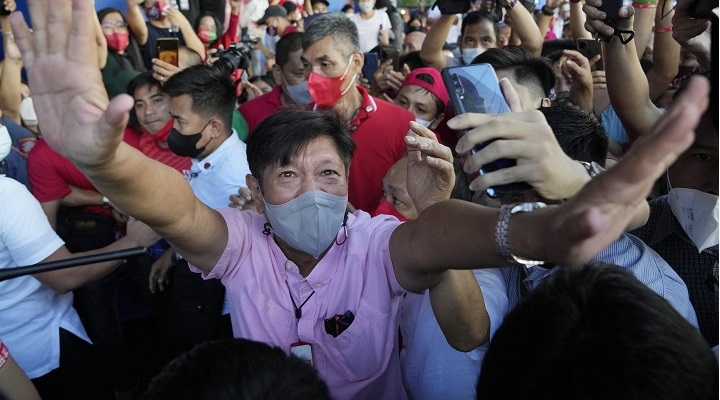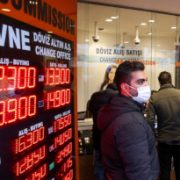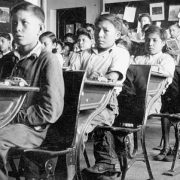The Philippines’ Marcoses given new lease on political life
Resilience, redemption, reconciliation and possible rebirth
It is misleading, if not mean, for detractors to attribute Ferdinand “Bongbong” Marcos Jr’s crushing victory in the Philippines’ presidential election on May 9 to merely the uneducated and the poor voting for him. Filipino voters are anything but gullible.
Despite Marcos Jr’s political baggage, adherents willingly took a gamble in the hope that their lot would improve over the next six years under a man whose heart they believe is in the right place. He is perceived to truly care for the have-nots of society.
Poverty, a widening wealth gap and chronic corruption are still prevalent in the country of 110 million almost four decades after his father, Ferdinand E. Marcos Sr, was deposed as president in the military-backed People Power Revolution.
In a stunning comeback, Marcos Jr secured about 31 million votes (56 percent) in this month’s election, more than double that of his closest rival candidate, outgoing Vice President Leni Robredo (27 percent), according to preliminary results. The final tally will be announced in late May.
This is Philippine populism.
The 1986 People Power Revolution was tantamount to a coup d’etat with Marcos Sr’s defense secretary and acting armed forces chief of staff switching sides and backing the movement. While Marcos Sr could have ordered loyalists in the army to shoot protesters challenging his victory in that year’s presidential election, he did not lest civil war break out.
So how and why did the son of what most Philippine and Western media call a “dictator” and “kleptocrat” pull off what was once unimaginable?
Some political pundits ascribed Marcos Jr’s landslide win to his forging strategic alliances with other powerful political families. According to surveys, Sara Duterte-Carpio, daughter of outgoing President Rodrigo Duterte, would have been a shoo-in for the presidency, but settled for the vice presidency in a joint ticket. Former presidents Gloria Macapagal Arroyo and Joseph Estrada also cast their lot with Marcos Jr.
The opposition’s failure to field a single candidate split the vote. Critics cried foul and blamed it on disinformation on social media and a decades-long concerted campaign to whitewash the family’s past. Marcos Jr’s campaign was well-oiled, but accusations of widespread vote-buying do not hold water.
In a statement after it became clear he had decisively won, Marcos Jr told the world: “Judge me not by my ancestors, but by my actions,” ostensibly to allay fears that he would be like his father who has been accused of stealing billions of US dollars, widespread human rights abuses and crony capitalism.
To call a spade a spade, “what doesn’t kill you, makes you stronger comes” – the aphorism of 19th century German philosopher Friedrich Nietzsche – best encapsulates the Marcoses’ political resilience. During more than five years in exile, they did not wallow in self-pity and were neither complacent nor defeatist.
The whole world had come crashing down around the Marcoses after the family patriarch’s ouster. It is difficult for outsiders to imagine what they went through in exile – distress, despair, derision and demonisation by the media. Marcos Sr died in exile in Hawaii in 1989 and his family returned home two years later to face criminal charges.
Second Chances
Not everyone deserves or gets a second chance in life. Those given a new lease on life should count their blessings and cherish what is very likely a once-in-a-lifetime opportunity.
The first time the Marcoses were given a second chance was in October 1940 when the Supreme Court overturned the death sentence meted out by a provincial court and acquitted Marcos Sr, then a 23-year-old law student, of the premeditated murder of his father’s political rival in their hometown of Ilocos Norte five years earlier.
One day after the rival routed Marcos’ father, Mariano, in a local election in 1935, the former’s supporters celebrated by parading a coffin on top a vehicle, stopping in front of the Marcoses’ home, honking horns and chanting “(Mariano) Marcos is dead”. In its verdict, the Supreme Court described the act as “provocative and humiliating”.
While behind bars, Marcos Sr finished his studies at the prestigious University of the Philippines, topped the national bar exam and penned his own defense before the nation’s highest court. He became a decorated World War II hero, albeit this was disputed by detractors decades later. He married a beauty queen and went on to become the 10th president of the Philippines after stints in the House of Representatives and the Senate.
Marcos Sr ruled the country for about two decades – nine years of that under martial law in the face of a communist insurgency, a separatist Muslim rebellion in the south and a series of bombings in Manila.
When Marcos Sr suspended civil rights in 1972, the Philippines’ former colonial master did not stop him because the United States was mired in the Vietnam War and needed US naval and air force bases – Subic and Clark – in the Philippines. Both bases closed in 1991.
Now, Marcos Jr has been given a second chance to redeem the family’s reputation. The 64-year-old has vowed to bridge the divide between all Filipinos – the first step in the right direction as national reconciliation is needed for the country to be reborn and regain its former glory.
For starters, the President-in-waiting could try to mend fences with the Jesuits who openly rooted for Madam Robredo and Jose Maria Sison, the exiled founder of the Communist Party of the Philippines, to end the longest communist rebellion in Asia.
He could try to turn enemies into friends by naming as advisers the best and brightest who lost in senatorial, congressional and gubernatorial elections or at the very least hear them out.
It would be unnecessary and unwise for Marcos Jr to rename venues and infrastructure, including Manila’s international airport, that were named after Benigno Aquino Jr, Marcos Sr’s nemesis who was assassinated upon returning to the Philippines from exile in 1983. Aquino’s widow, Cory, assumed the presidency in 1986, while his son and namesake was elected president in 2010.
For fatalists, everything happens for a reason – Marcos Jr’s victory is the family and the Philippines’ destiny. For Catholics, it was the will of God who works in mysterious ways.
The past is important, but the future is even more important. To give Marcos Jr the benefit of the doubt is to give the Philippines a second chance.
- Benjamin Kang Lim is a Beijing-based award-winning Filipino journalist and author. He has worked in China and Taiwan for four decades and was previously with Reuters for 27 years, serving as Taipei and eventually Beijing bureau chief.







It could be said that with this article, post-reality has found its place in settimananews. Mr. Kang Lim’s text is gruesomely cynical in its effort to sound equidistant, politically correct, and using geopolitics reasons to justify filthy and unspeakable crimes. The author even manages to pass off Marcos, the grandfather, grandmother and children as persecuted, as victims … The allegations about the dictator’s crimes – allegations that have been proven, overtly proven and confirmed by local and international courts with sentences of varying degrees – appear here as Jesuit opinions, gossip from detractors and enemies of the Marcos dynasty. Infact, they are unequivocal facts that sowed death, destruction and plundered the country as no one ever had. Then, it is true, the outcome of these last elections can be analyzed and interpreted as each person wishes. More than politics, there is much culture in these results. However, history cannot be rewritten again by the new “winners” for their own benefit and use. Dear and highly esteemed Don Lorenzo, please, do not let history go through bleach! A little more “senso storico”, besides asphyxiating analyses by specialists who claim to be “chemically pure” (so-called independents), would help to understand what is going on in the Philippines, as well as do some justice to the many, the too many who ALSO because of the Marcoses have suffered too many injustices. Will you find someone to answer to this “multi award-winning” Mr. Kang Lim?